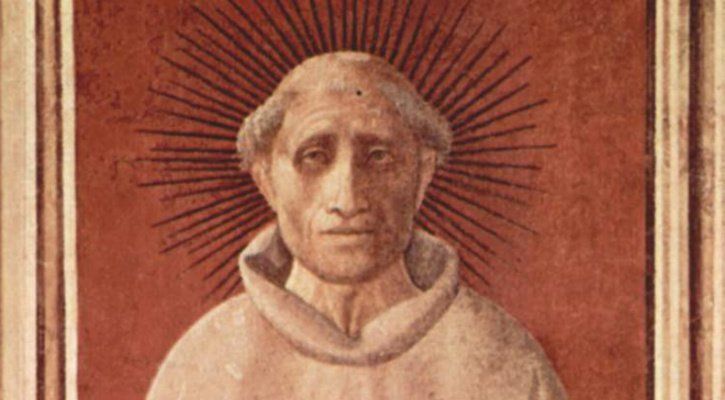Blessed Jacopone da Todi
Saint of the Week
“What happens to the drop of wine that you pour into the sea? Does it remain itself, unchanged? It is as if it never existed. So it is with the soul: Love drinks it in, It is united with Truth, Its old nature fades away, It is no longer master of itself.”
Published on: December 23, 2021
Born in Todi, Italy in 1230, Jacopo dei Benedetti was born to a noble family and took full advantage of his privilege. He studied law in Bologna and gained a reputation for being a greedy and materialistic man. In his late 20s, he married a beloved and generous noblewoman by the name of Vanna. She took it upon herself to atone for her husband’s life of excess, which was the case on the day she died.
Soon after the wedding, Jacopo urged Vanna to attend a public tournament where she was killed after the stand she was seated on collapsed. Jacopo rushed to her side and was surprised to find she was wearing a cilice; the mortification of the flesh to repent for her husband’s choices.
This moment changed Jacopo’s mission in life. He left his legal practice and split up his possessions among the poor, choosing to become a wandering ascetic in 1268. He joined the Third Order of St. Francis and gained the nickname Jacopone, meaning “crazy Jim”, for his eccentric and unpredictable behaviours when acting out spiritual visions. His reputation as a madman was well earned through actions such as attending his brother’s wedding tarred and entirely covered in feathers.
After 10 years of this lifestyle, he was received into the Order of Friars Minor. They were hesitant to accept him due to his reputation, but were swayed by Jacopone’s poem on the vanities of the world; a demonstration of his growth since his early days as a vain nobleman.
At the age of 68, Jacopone was imprisoned for his role in a faction that believed in preaching strict poverty. He was released five years later when Benedict XI became pope and retired to a small village in poor health. He died on Christmas Eve in 1306 after being given his last rites by his good friend, John of La Verna.


